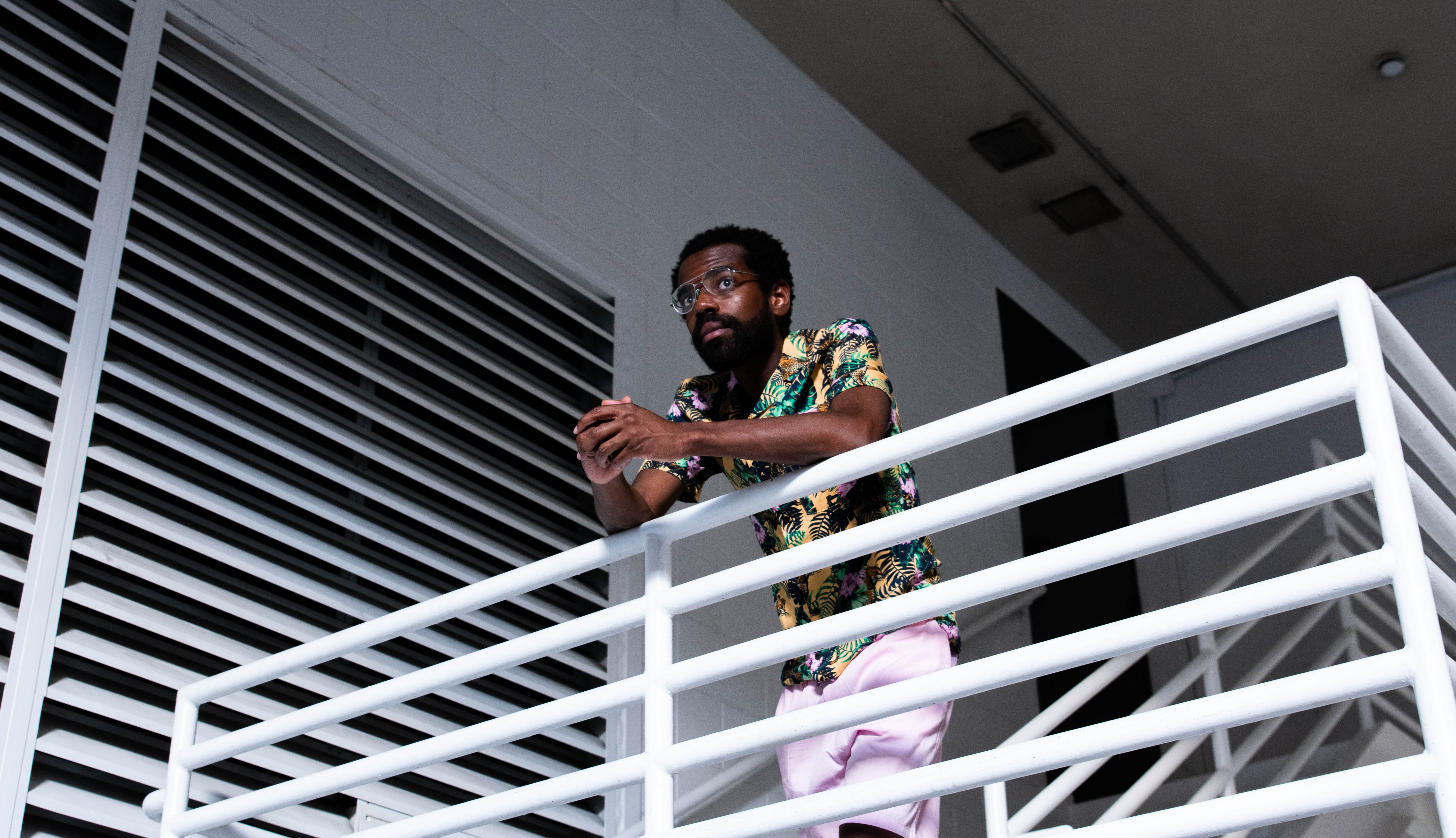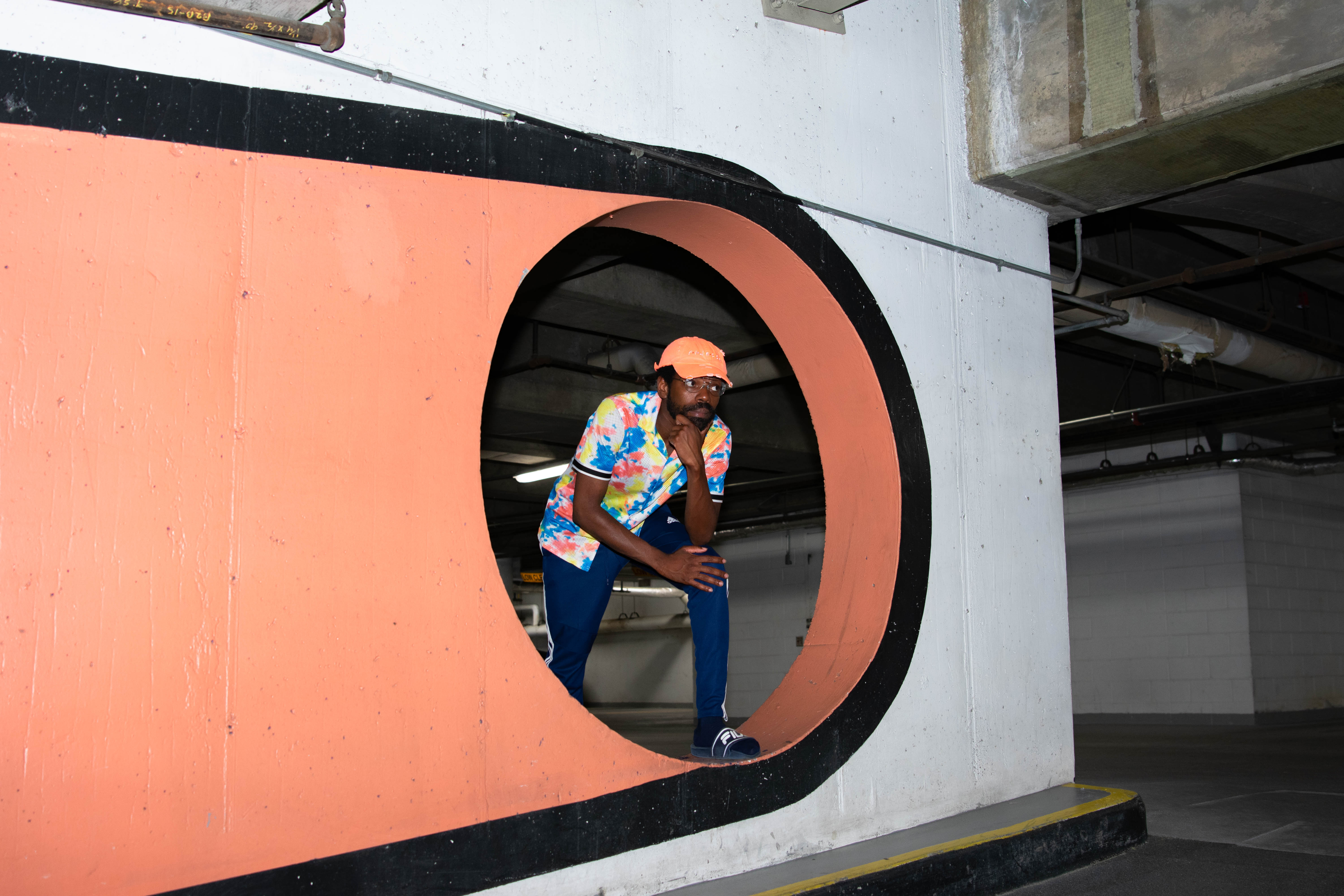To celebrate Black History Month and beyond, every week in February 303 Magazine is sitting down with Black Denver musicians to highlight the incredible art they consistently turn out, as well as sharing a curated playlist from each musician to expose the ears of our readership to music that matters. To quote from the late-great Ossie Davis, “Any form of art is a form of power; it has impact, it can affect change. It can not only move us, it makes us move.”
Schama Noel weaves intricate webs of hip-hop, steeped in his own identity as an immigrant and self-proclaimed “awkward nerdy kid.” Noel’s music is distinct and unique, just like the local rapper, offering his own unique perspective on the world we live in. This week, 303 caught up with Noel to talk about hip-hop and how perspective and social identity influence music.
Listen to Schama Noel’s curated playlist below and check out his music here.
303 Magazine: Tell us a little bit about how you curated your playlist?
Schama Noel: It’s 17 songs total. I intentionally put certain songs before one another so every listener should play it front to back like an actual album.
303: Do any of the songs on the playlist have special meaning or significance?
SN: Every song I put on the playlist has its significance, but I’d say “Black” by Dave is one of the greatest songs I’ve ever heard dealing with colonization, hatred within the black community, prejudices, unity, etc.
303: Outside of the scope of this playlist, what draws you to music as an art form?
SN: How intentional an artist is with their production/lyrics/flows/etc. I love when artists take their music seriously — that lets me know that they actually care about their craft and are making music because they love it, which leads to more innovative and sincere sounds.
303: How would you describe your creative process?
SN: My music is like a diary. If you listen to all six of my projects in order, you would know exactly who I was before even meeting me. I love being authentic to who I am in my music because when I listen back to it, I can genuinely say, “This is who I really am,” “This is what I felt at this particular time,” etc. These were my actual experiences as a Black man, an immigrant, awkward nerdy kid, huge rap fan and so on.
303: How do other artists of color inspire you in your own work?
SN: By creatively telling me their experience through their own lens. Telling a similar story in an innovative way is what gets my attention. I don’t want to hear regurgitated flows, concepts, sounds — I’m all about progression and distinctiveness when it comes to music.
303: What’s something unique about the music Black artists create?
SN: The history, data, experience, pain, trauma and death that a lot of the music takes inspiration from. Even when we were in shackles we’d sing to uplift our spirits. It’s amazing to see how much hip-hop has influenced the world now — there are foreign countries with kids using rap as a form of protesting against their oppressive governments.
303: Hip-hop and rap fans have a lot to thank the Black community for — do you think racial identities are still important in those scenes? Why?
SN: Because in a world that wanted to completely erase our existence and contributions, a world that wanted us to hate ourselves for being brown/Black, a world that did everything in [its] power at times to prevent us from progressing as people (i.e, Tulsa Race Massacre, Tuskegee Project, assassination of Fred Hampton, MLK, etc.). It would be very hard to separate our identity from our music, our identity is a reflection of the music.
Take some time to learn about these historical tragedies and noteworthy individuals by reading these links: Tulsa Race Massacre, Tuskegee Project, Fred Hampton and Martin Luther King Jr..
303: Do you think music, or any other art form, can inspire and create change?
SN: Absolutely. Music, art, dancing — all of those and more have a way of simplifying or even magnifying issues that humanity faces, whether it be racism or environmental, art can spark the necessary conversations and bring awareness to certain things.
303: What do you think the future of music looks like?
SN: Right now it seems pretty watered down as far as mainstream songs go. I’m hoping it goes to a place where originality is praised more than repetitive bubblegum sounds. Artists are definitely becoming more business savvy and owning the rights to their music which is great, but sonically, I can’t really say we’re headed towards a renaissance era.
303: What’s next for you as an artist?
SN: I have a music video dropping March 25, filmed by Noise.Aestetic, that I’m really excited about. It’s really gonna make Colorado’s music and film scene look better than it already does.
I’ll also be dropping a 10-song EP on July 15, which is my 28th birthday. The title is Two Can Play That Game.


